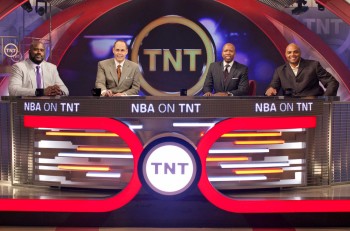This past summer, it dawned on me that I am no longer an enjoyable person to watch sports with. I have stopped asking too many questions, and I don’t scream advice or profanities at the pixels on the screen, nor am I the know-it-all preacher who imparts his ‘knowledge’ on those watching with me. What I am however, is impatient towards horrible commentators and analysts, many of whom are former athletes.
As a successful athlete’s career winds down, the natural curiosity of what lies beyond the realm of professional sports takes centre stage. If these athletes ooze any sort of personality, the immediate reaction is to move to television and become a media personality. Shaquille O’Neal, the future NBA Hall of Fame centre, is one such infamous example of a television transition gone awry.
When Bleacher Report ranked the worst commentators and analysts of the past 10 years, six of the 10 names on the list belonged to former athletes. Sports Illustrated recently listed the top 20 sportscasters of all time. Unsurprisingly, just one former athlete made their list: John Madden, who was ranked no.20.
To clarify: I’m not under the impression that I know more than any of these athlete-turned-analysts. Top-tier athletes are just like professionals in any other industry—they have an intimate knowledge of both the broad concepts and minor intricacies that foster success. Yet, when it comes to explaining something on air, they face unmatched difficulties.
In March 2013, ESPN announced that former Baltimore Ravens legend Ray Lewis would join its network. Lewis’ talent was enormous and his personality was even larger, but it will be a surprise if he thrives in his new career. As an interviewee, he was known for his absurd responses and even his former teammates have admitted that they have a difficult time understanding him when he addressed the team. Simply put, Ray Lewis was trained to play football, not to speak about it.
I haven’t always been unforgiving of athletes-turned-analysts, but what pushed me over the edge was an incident involving former pitcher and current MLB Network analyst, Mitch Williams. I have nothing against Williams. In fact, as a Toronto Blue Jays fan, he holds a special place in my heart—he was the pitcher on the wrong end of Joe Carter’s World Series-winning home run in 1993.
The incident I’m referring to is a comment he made on MLB Tonight. While a clip of Diamondback pitcher Brandon McCarthy being hit in the head by a line drive played, Williams declared, “If you don’t pitch in, this is what’s going to happen.”
McCarthy was very nearly killed by that line drive and was not amused by Williams’ analysis, tearing into him on Twitter. The point Williams was likely trying to make was that if you throw outside, a hitter is more likely to extend his arms and hit a ball back up the middle. This is baseball knowledge that most casual fans probably don’t have.
The problem here, however, is that Williams’ wording makes it seem as though throwing outside is a dangerous strategy, which it isn’t. I have a hard time believing that a trained reporter with the same knowledge would muddy up his or her message the way Williams did.
Just as playing and coaching are two separate skills, knowing something and being able to explain it are not the same either. This should be abundantly clear to university students, as we’ve all had brilliant professors who nonetheless struggle as teachers.
Perhaps someday networks will smarten up and make sure the athletes they hire actually have something worthwhile to say. Until then, I guess I’ll just have to learn to enjoy watching sports with the television muted.









